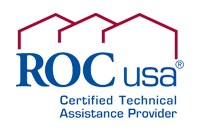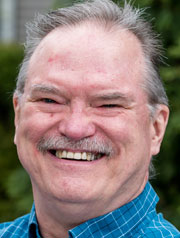
Growing up in NH's first resident-owned community
By Steve Varnum
Jeff Sirles was a young child when his dad and neighbors converted their mobile-home park into NH's first resident-owned community.
In 1983, Jeff Sirles was barely as tall as the kitchen table, but remembers neighbors crowding around it as soon as the dinner dishes were cleared. On other nights, he was asleep long before his dad, Bob, returned from meetings.
He remembers, even at age 4, feeling tension among the families in Meredith Trailer Park, along with a determination to save their homes and their neighborhood.
The question was: How?
The elderly couple who owned and lived in the park wanted to sell it to the residents, but that had never been done. There was no checklist or guidance for the residents to follow, and no bank willing to lend to them.
“It doesn't get any more grassroots than working-class families getting together to talk about how they're going to save their community, and that's 100 percent what it was,” says Jeff. “My father had to go door to door and talk to his neighbors about, ‘Hey, this is a possibility.’ ”
“Nobody wanted to leave their little neighborhood, so they were willing to take the leap.”
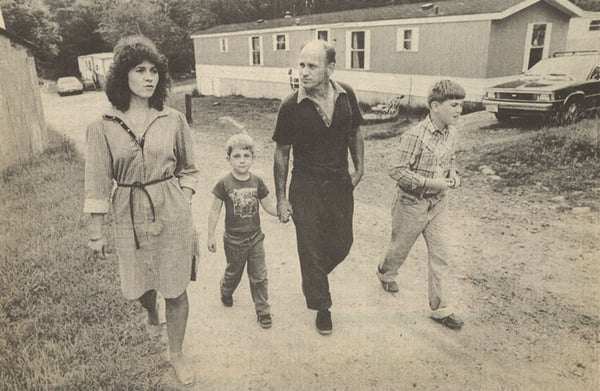
Jeff Sirles, second from left, holds his dad's hand as they walk around the park. |
The leap was putting their faith that a months-old loan fund that hadn’t yet raised any money, nor made a loan.
And it worked. The New Hampshire Community Loan Fund used its first investment from the Sisters of Mercy to make its first loan so the new Meredith Center Cooperative could buy the park.
From the family and neighborhood conversations, young Jeff knew it was a really big deal. Now, thinking back on it nearly 37 years later, Jeff says his neighborhood becoming a resident-owned and -run community changed his life.
“It was great. It definitely made a positive contribution to my life and, in my opinion, the lives of everybody else that was there,” says Jeff, who lives in Ashland and is Brand Coordinator for Belknap Landscaping Company.
“The stability alone, not having to worry whether we’d have to move. I knew where home was, and I knew where home was going to be next year, and I knew where home was going to be when I graduated high school and college.”
Through the 1980s, the community was mostly populated by families, so Jeff and his friends grew up and went to school together, like in any neighborhood. Even as a schoolboy, though, Jeff knew there was a difference. He had friends who lived in other mobile home parks and noticed how outsiders viewed Meredith Center Co-op’s residents and how they viewed themselves.
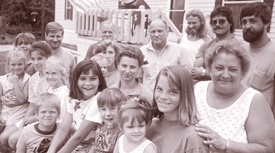
“I can definitely tell you it felt different. We didn't have a landlord. Nobody could tell us what to do other than us. We weren't dependent upon a landlord for anything,” he says. “We weren't beholden to anybody, and while we may have been working class blue collar, we could hold our heads up high because we were accomplishing things.”
Not that it was easy. Having had a front-row seat to what it took to buy and run the park, Jeff remembers neighbors struggling as they pioneered the resident-owned community concept. As they created and voted on their earliest bylaws, neighbors disagreed about how many pets each home could have and how much freedom each homeowner had over what they could do on “their” house lot, which, of course, now belonged to the cooperative.
He also remembers the pride his neighbors took in their community. Almost immediately after closing the sale, families set to work clearing brush and beautifying their house lots. The park’s infrastructure was also in bad shape and needed urgent attention.
Bob Sirles, who was the head of maintenance at Laconia State School and later the prison, was elected the co-op’s first president. When he was interviewed for the now-defunct New Hampshire Times, the article said “he sounded like a typically harried property owner: ‘There’s a lot of stuff we’ve got to do right away. First we’ve got to fix the road and put electricity to the pump. There’s not enough time.’ ”
Soon, though, Jeff’s parents bought a new manufactured home that his dad custom designed. Then Bob landscaped the yard with annual and perennial flowers. It was such a showpiece that the home’s manufacturer came each spring to take pictures for its catalog.
“You don't see great big gardens and nice sitting areas in parks because people don't invest the money when it's not their land,” Jeff says. Once a cooperative, though, “everyone was doing that sort of thing.”
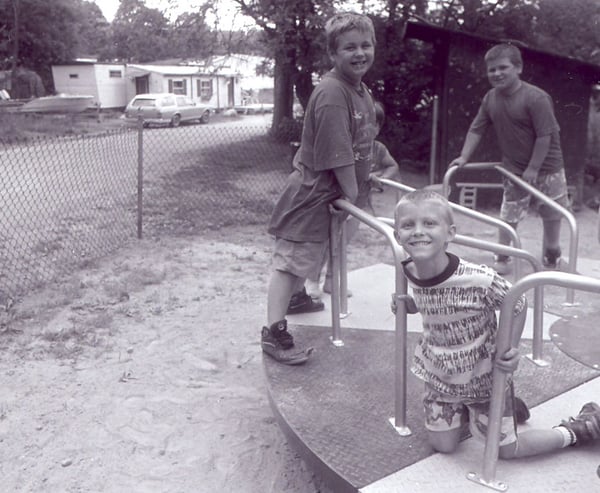
Jeff says growing up in a small (13-home) co-op also instilled some important values. “You cannot live in a co-op and not have some sort of a civic mind,” he says. “You understand that you have influence in your community, and you have a responsibility to your community.”
For some, that civic responsibility stretched beyond the co-op. A few years later, Bob Sirles and other residents created a Meredith Center Association to build a children’s park and other projects in the village.
There were other, unspoken, lessons about the responsibilities of leadership. Bob served on the co-op’s board of directors for many years, and there were times when he sidestepped discussing issues before they went to a vote of the members. “If he indicated which way he would go, some people just automatically followed him. He wanted people to make up their own minds. He didn't want to be a de facto landlord,” Jeff says.
Now in his early 40s, Jeff hopes the adults living in and leading cooperatives appreciate the difference it’s making for their children in terms of not only stability, but ownership, and the comfort of living in a real community with neighbors they get to know year after year.
“Yeah, there will be times of divisiveness, but at least people have a say,” he says. “It’s one thing to complain about people arguing, but you want to know what's worse than arguing? It’s not having any voice at all.”
Steve Varnum is the Communications Director of the Community Loan Fund.
Read more about New Hampshire's first resident-owned community.





